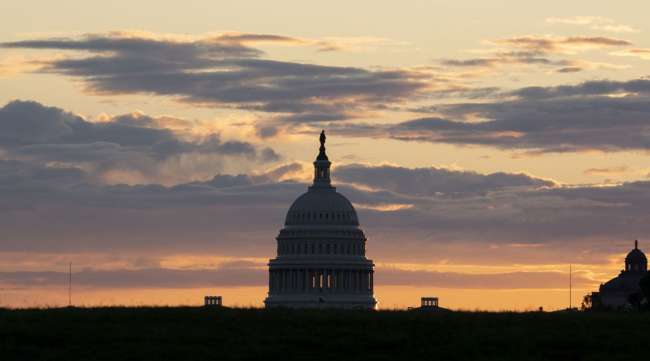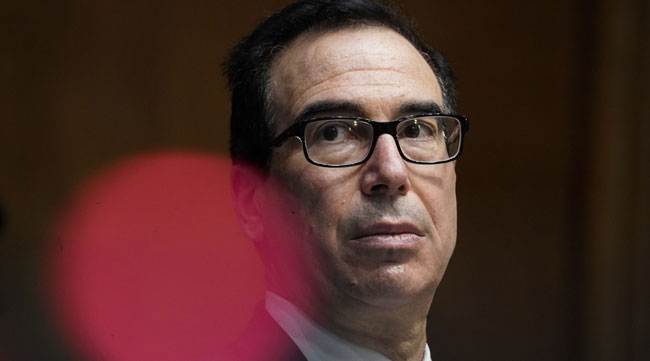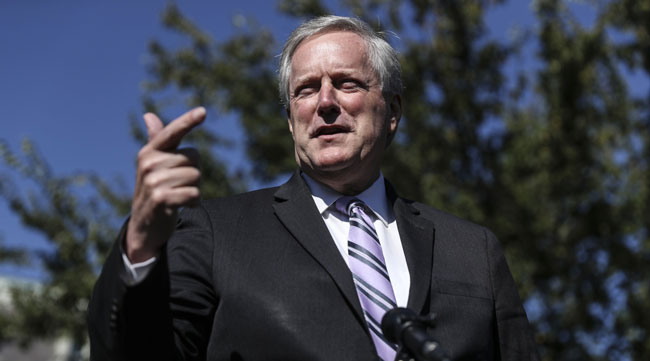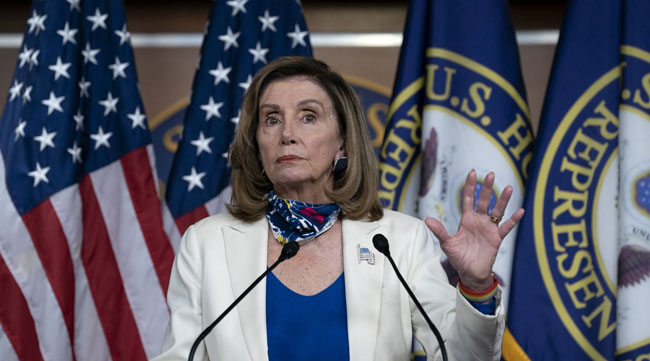Bloomberg News
Stimulus Talks Grind On; No Deal Yet Despite Trump Urging

[Ensure you have all the info you need in these unprecedented times. Subscribe now.]
House Speaker Nancy Pelosi and Treasury Secretary Steven Mnuchin engaged in another round of stimulus talks Oct. 5 with no sign they are close to a deal, despite the urging of President Donald Trump to get it done.
The two negotiators have maintained talks by telephone since the week of Sept. 28 when they met in person for the first time since early August. They’re attempting to bridge a still-yawning gap between the Democratic $2.2 trillion proposal and a $1.6 trillion White House offer.
While Trump’s infection with COVID-19 and his tweet from the hospital Oct. 3 pressing negotiators to “get it done” had raised hopes that the administration would endorse a bigger package and reach agreement with Democrats, the timeline is increasingly compressed as Election Day looms.
Pelosi and Mnuchin spoke by phone for one hour Oct. 5 and plan to speak again Oct. 6, according to Drew Hammill, a Pelosi spokesman. They discussed spending amounts and will exchange written proposals, Hammill said.

Treasury Secretary Steven Mnuchin has acted as a primary negotiator for the White House. (Drew Angerer/Bloomberg News)
Even if the two sides agree on an outline in the coming days, it would likely take Congress two weeks to write the bill, return from recess, overcome Senate delays and pass the legislation. That would mean weeks more until benefits like the $1,200 direct payments both sides agree on for most Americans hit individuals bank accounts.
The stock market climbed Oct. 5 nevertheless, with the S&P 500 Index up 1.4% as of 12:30 p.m.
Meadows’ Caution
White House Chief of Staff Mark Meadows — referred to even in the administration as the “bad cop” operative in the stimulus talks — on Oct. 5 said the president wants the bill to be “fiscally responsible.” That suggested the conservative staffer may still resist a further move toward Pelosi’s bigger package.
“There are a lot of people that continue to hurt, are waiting on stimulus, and the president’s committed to getting a deal done,” Meadows said. “He wants to make sure we move expeditiously — but also in a fiscally responsible manner.”

White House Chief of Staff Mark Meadows has appeared resistant toward Pelosi's bigger stimulus package. (Oliver Contreras/Bloomberg News)
Meadows suggested that Pelosi should agree to pass parts of the stimulus in a piecemeal fashion, something she has largely resisted doing, with exceptions for failed attempts to enact airline and Postal Service relief.
Pelosi said Oct. 4 on CBS that an agreement “just depends on if they understand what we have to do to crush the virus.”
Renewed Optimism
The comments were less upbeat than remarks Pelosi made on Oct. 2 suggesting that Trump’s diagnosis would “change the dynamic” of the talks and prompt the GOP to be more generous in its offers.
That thinking helped prompt renewed optimism from investors and analysts alike who had in recent days increasingly abandoned expectations for an agreement by the Nov. 3 election.
“We were close to giving up on our assumption that lawmakers would agree to $1.5 trillion in new fiscal support. But, for the time being we will hold onto this assumption,” wrote Moody’s Analytics economist Mark Zandi in a note to clients Oct. 4.

House Speaker Nancy Pelosi consistently has spoken optimistically about the possibility of a deal. (Stefani Reynolds/Bloomberg News)
The optimism in the equities markets may perversely take pressure off of lawmakers to come to deal, all the more so with the president cheering the market rally. In tweets Oct. 5, he highlighted how 401(k) retirement accounts have swelled thanks to stock price appreciation in his term. The market “is getting ready to break its all-time high,” he tweeted.
2008 Stimulus
In the last major economic catastrophe, the 2008 financial crisis, it took a sudden market meltdown to jolt congressional Republicans into action, at a time when the nation also was weeks away from a presidential election.
The Bush administration’s $700 billion Wall Street bailout plan initially failed in the House, amid overwhelming Republican opposition, triggering a selloff as the vote was underway and a 778-point plunge in the Dow, then the largest one-day point drop in history.
The fear pulsing through markets provoked a furious response against Republican lawmakers, with the normally closely aligned U.S. Chamber of Commerce among those warning it would retaliate against them. By the end of the week, the House passed a revised version of the bailout.
RELATED: US Jobs Rise Less Than Forecast as Economic Rebound Downshifts
The current standoff comes even as most economists continue to call for a substantial injection of fiscal stimulus to jolt the economy.
“I really think that fiscal policy support is important if we’re going to avoid widespread employment cuts beyond what we’ve already seen,” Federal Reserve Bank of Chicago President Charles Evans said Oct. 5.
Evans also said that the impact of waning fiscal support is already being felt. He spoke three days after a government report showed that monthly payroll gains had slowed sharply in September, to the weakest since the job market began recovering in May.
Want more news? Listen to today's daily briefing:
Subscribe: Apple Podcasts | Spotify | Amazon Alexa | Google Assistant | More




